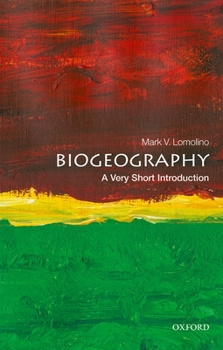Biogeography: A Very Short Introduction
(Part of the Oxford's Very Short Introductions series Series)
Select Format
Select Condition 
Book Overview
Biogeography is the study of geographic variation in all characteristics of life - ranging from genetic, morphological and behavioural variation among regional populations of a species, to geographic trends in diversity of entire communities across our planet's sufrace. From the ancient hunters and gatherers to the earliest naturalists, Charles Darwin, Alfred Russel Wallace, and scientists today, the search for patterns in life has provided insights that proved invaluable for understanding the natural world. And many, if not most, of the compelling kaleidoscope of patterns in biological diversity make little sense unless placed in an explicit geographic context. The Very Short Introduction explains the historical development of the field of biogeography, its fundamental tenets, principles and tools, and the invaluable insights it provides for understanding the diversity of life in the natural world. As Mark Lomolino shows, key questions such as where species occur, how they vary from place to place, where their ancestors occurred, and how they spread across the globe, are essential for us to develop effective strategies for conserving the great menagerie of life across our planet. ABOUT THE SERIES:
The Very Short Introductions series from Oxford University Press contains hundreds of titles in almost every subject area. These pocket-sized books are the perfect way to get ahead in a new subject quickly. Our expert authors combine facts, analysis, perspective, new ideas, and enthusiasm to make interesting and challenging topics highly readable.
The Very Short Introductions series from Oxford University Press contains hundreds of titles in almost every subject area. These pocket-sized books are the perfect way to get ahead in a new subject quickly. Our expert authors combine facts, analysis, perspective, new ideas, and enthusiasm to make interesting and challenging topics highly readable.
Format:Paperback
Language:English
ISBN:0198850069
ISBN13:9780198850069
Release Date:October 2020
Publisher:Oxford University Press
Length:176 Pages
Weight:0.35 lbs.
Dimensions:0.5" x 4.2" x 6.8"
Customer Reviews
0 rating





